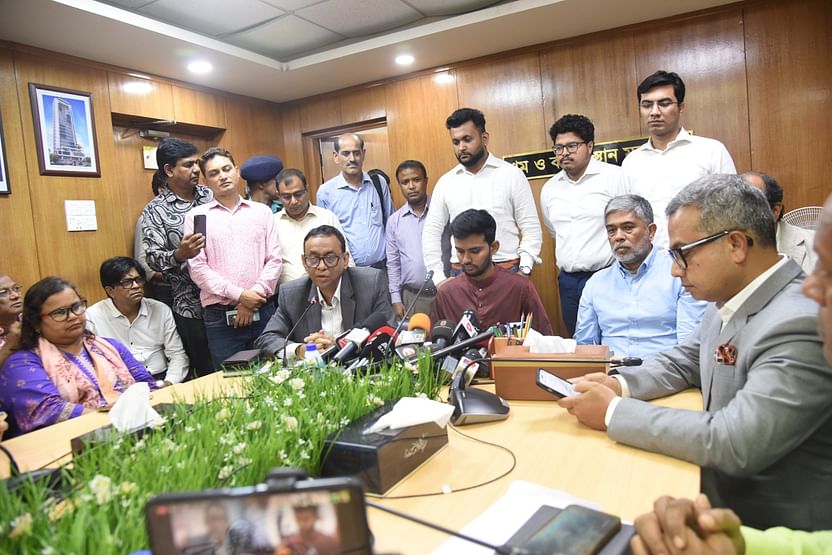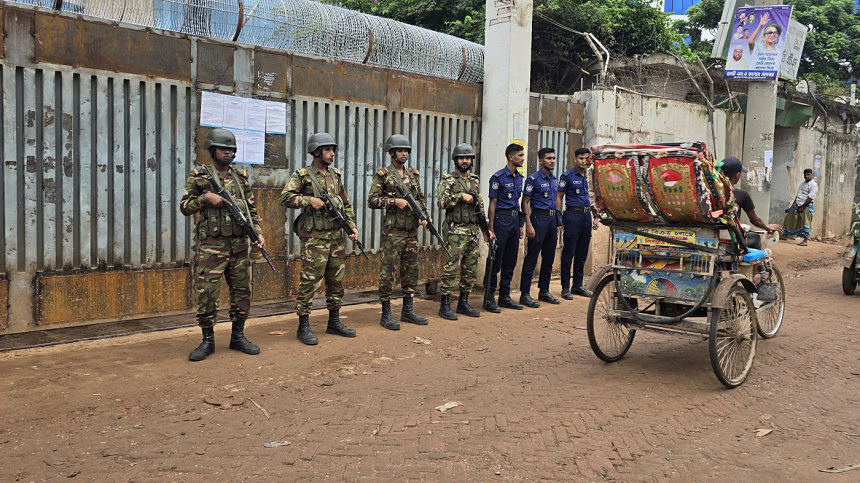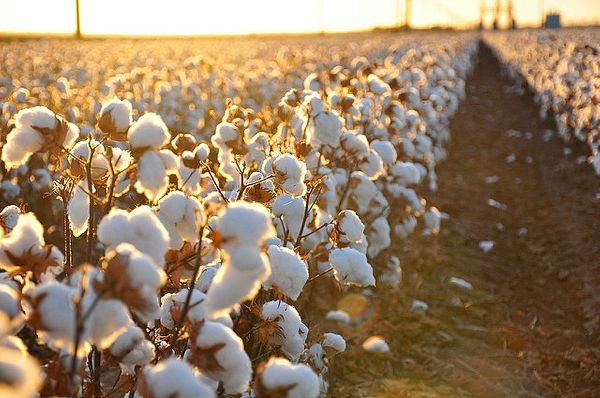পোশাক শিল্পে অস্থিরতার জন্য তিন কারণ চিহ্নিত
ক্ষমতার পালা বদলের পর দেশের তৈরি পোশাক খাতে শ্রমিক অসন্তোষ তীব্র আকার ধারণ করার পেছনে বকেয়া বেতনের সঙ্গে আরও দুটি বিষয় আলোচনায় আসছে। একটি হলো ঝুট ব্যবসার নিয়ন্ত্রণ, অন্যটি বিদেশি শক্তির ইন্ধন।
এ ছাড়া রাজনৈতিক পটপরিবর্তনে কিছু কারখানা মালিকের অনুপস্থিতিও শ্রমিক অসন্তোষ সৃষ্টিতে ভূমিকা রাখছে বলে আইন-শৃঙ্খলা বাহিনী ও শ্রমিক প্রতিনিধিরা মনে করছেন।পোশাক শিল্পের এ অস্থিরতায় ইতোমধ্যে ১০-১৫ শতাংশ সম্ভাব্য ক্রয়াদেশ বাতিল হয়ে গেছে বলে জানিয়েছেন অন্তর্বর্তীকালীন সরকারের শ্রম উপদেষ্টা। কয়েকটি দেশ এই সুযোগকে কাজে লাগিয়ে ক্রেতাগোষ্ঠীকে টানার চেষ্টা করছে।
‘বিদেশি শক্তির’ ইন্ধনের বিষয়ে গোয়েন্দা তৎপরতাও বাড়ানোর কথা জানিয়েছে আইন-শৃঙ্খলা বাহিনীর কর্মকর্তারা।অন্যদিকে শিল্পের উদ্যোক্তারা বলছেন, পর্যাপ্ত পুলিশ না থাকায় দুষ্কৃতকারীরা সুযোগ নিচ্ছে; শ্রমিক সেজে হামলা করছে।
ছাত্র-জনতার প্রবল আন্দোলনে গত ৫ আগস্ট আওয়ামী লীগ সরকারের পতনের পর বিভিন্ন শ্রেণি-গোষ্ঠী নানা দাবিতে মাঠে নেমেছে। পোশাক ও ওষুধ শিল্পের শ্রমিকরাও ১০ দিনের বেশি সময় ধরে নানা দাবিতে বিক্ষোভ চালিয়ে যাচ্ছে।
পোশাক শ্রমিকদের দাবিগুলো সুনির্দিষ্ট নয়। একেক কারখানায় একেক ধরনের দাবি উঠছে। সরকারের তরফে শুরুতে উসকানি ও ষড়যন্ত্রের কথা বলা হয়, যৌথ অভিযানও শুরু হয়।
তবে এভাবে পরিস্থিতি সামাল দেওয়া যায়নি। প্রতিদিনই বহু কারখানা বন্ধ থাকছে।
৭৫ শতাংশ কারখানার বেতন পরিশোধ
ছাঁটাই বন্ধ, হাজিরা বোনাস চালু, নতুন শ্রমিক নিয়োগের দাবি নিয়ে শুরু হওয়া শ্রমিক আন্দোলন তীব্র হয়েছে আগস্ট মাসের বেতন, নিয়মিত টিফিন বিল দেওয়ার দাবিতে।
শ্রমিকদের পুরানো দাবি পূরণ আলোচনার ভিত্তিতে হবে- মালিকপক্ষ ও বিজিএমইএ নেতাদের এমন কথায় শ্রমিকরা কাজে ফিরে গিয়েছিলেন। কিন্তু আগস্ট মাসের বেতন পরিশোধে বিলম্ব ও ঝুট ব্যবসার নিয়ন্ত্রণ নিয়ে ফের উত্তপ্ত হয়েছে পোশাক শ্রমঘন এলাকা গাজীপুর ও সাভারের কারখানাগুলো।
বেতন সমস্যা কাটাতে জুলাই আন্দোলনে কারফিউ থাকায় উৎপাদন বাধাগ্রস্ত হওয়ার কথা জানিয়ে আগস্টের বেতন দিতে ‘সফট’ ঋণ চেয়েছিলেন তৈরি পোশাক খাতের উদ্যোক্তারা।
সরকারও সেই দাবি পূরণ করে ব্যাংকগুলোকে ঋণ দেওয়ার নির্দেশ দেয়। এরপর গত বৃহস্পতিবার পর্যন্ত প্রায় ৭৫ শতাংশ কারখানায় বেতন পরিশোধের কথা জানিয়েছে তৈরি পোশাক খাতের উদ্যোক্তাদের সংগঠন বিজিএমইএ।
দেশের রপ্তানি আয়ের ৮৩ শতাংশের যোগানদতা এবং ৪০ লাখ মানুষের কর্মসংস্থানের এ খাতের আড়াই হাজার কারখানা বিজিএমইএর সদস্য। এর মধ্যে ৪০ শতাংশ নিটওয়্যার ও সোয়েটার এবং বাকি ৬০ শতাংশই ওভেন খাতের।
বিজিএমইএ পরিচালক মহিউদ্দিন রুবেল বলেন, বৃহস্পতিবার পর্যন্ত এক হাজার ৫৯৫টি কারখানার বেতন হয়েছে। দুই হাজার ২৯টি কারখানা খোলা আছে। বন্ধ হওয়া কারখানার সংখ্যা ৭৫টি।
অন্যদিকে আশুলিয়া শিল্প পুলিশ-১ এর পুলিশ সুপার মো. সারোয়ার আলম বলেছেন, বৃহস্পতিবার আশুলিয়া শিল্পাঞ্চলে ৮৬টি কারখানা অনির্দিষ্টকালের জন্য বন্ধ ঘোষণা করা হয়েছে। সাধারণ ছুটি ঘোষণা করেছে ১৩৩টি কারখানায়। বেতন বকেয়া থাকায় শ্রমিক অসন্তোষ নিয়ন্ত্রণ করা সম্ভব হচ্ছে না বলে মনে করেন শিল্প পুলিশ প্রধান কার্যালয়ের ডিআইজি সিবগাত উল্লাহ।
তিনি বলেন, “আইন-শৃঙ্খলা বাহিনী যৌথভাবে সব কাজ করছে। এখানে সেনাবাহিনীও আছে, আমরা পুরো এলাকা টহলের আওতায় রেখেছি। সমস্যা হচ্ছে বেতন নিয়ে। “(শ্রমিকরা) বেতন যদি না পায়, তাহলে এই সমস্যা কীভাবে সমাধান হবে? আশা করছি পরিস্থিতির উন্নতি হবে। বেতন ক্লিয়ার হচ্ছে।”
হাতবদল হচ্ছে ঝুট ব্যবসা
ক্ষমতার পালাবদলে পোশাক খাতের ‘লোভনীয়’ ব্যবসা হিসেবে পরিচিত ঝুট ব্যবসারও হাতবদল হচ্ছে। সরকার পরিবর্তনের পরে আওয়ামী লীগ সমর্থকদের হাত থেকে ব্যবসা বিএনপি সমর্থক পরিচয়ে দখলের নেওয়ার চেষ্টা দেখছেন পোশাক মালিক ও শ্রমিক প্রতিনিধিরা। এমন অভিযোগ পেয়ে বিএনপির পক্ষ থেকে বহিষ্কারের ঘটনাও আছে।
যেসব এলাকায় ঝুট ব্যবসার নিয়ন্ত্রণ বদল হয়নি, সেখানেই শ্রম অসন্তোষ বেশি হচ্ছে বলে অভিযোগ।
স্বাধীন বাংলা গার্মেন্টস শ্রমিক ফেডারেশনের সভাপতি আল কামরান বলেছেন, “হঠাৎ করে রাজনীতি বদলে গেছে। ঝুট ব্যবসা নিয়ন্ত্রণ করত আওয়ামী লীগ নেতারা, এহন বিএনপি নেতারা নিতে চায়। হেতেরাই (তারাই) অভাবী শ্রমিকদের কাজে লাগায়ে বিশৃঙ্খলা করতেছে মনে হয়।”
সাভারের আশুলিয়া থানার ওসি মাসুদুর রহমান বলেন, “গামের্ন্টস শিল্পে অস্থিরতার পিছনে বহিরাগতদেরও হাত রয়েছে। তারা টাকার বিনিময়ে শ্রমিক সেজে পোশাক খাতে অস্থিরতা সৃষ্টি করছে। ঝুট ব্যবসার হাতবদল নিয়েও আন্দোলনরত শ্রমিকদের উসকে দেওয়ার অভিযোগ আছে।”
উদ্যোক্তারা আসছেন না কারখানায়
বেতনের দাবিতে শুরুর দিকে কোনো আন্দোলন না হলেও গত ১১ সেপ্টেম্বর কারখানার সামনে আন্দোলন করতে শুরু করেন বেক্সিমকো গ্রুপের কর্মীরা।
সরকার পতনের পর গ্রুপটির ভাইস চেয়ারম্যান, সাবেক প্রধানমন্ত্রীর বেসরকারি বিনিয়োগ বিষয়ক উপদেষ্টা সালমান এফ রহমান জেলে যাওয়ায় বেতন নিয়ে অনিশ্চয়তায় পড়েন বেক্সিমকোর প্রায় ৭৫ হাজার কর্মী।
এমন অবস্থায় কর্মীদের বেতন দিতে গত বুধবারই ৭৯ কোটি টাকার ঋণ সৃষ্টি করে বাংলাদেশ ব্যাংকের মাধ্যমে কারখানা ব্যবস্থাপনা কর্তৃপক্ষকে বুঝিয়ে দেয় অন্তর্র্বর্তীকালীন সরকার। এতে বেক্সিমকো গ্রুপের কর্মীরা আন্দোলন থেকে সরে যাওয়ার ঘোষণা দেন।
উদ্যোক্তারা কারখানায় না যাওয়ায় শ্রম অসন্তোষ তৈরি হচ্ছে বলে মনে করেন গাজীপুর মহানগর পুলিশের সহকারী কমিশনার (কোনাবাড়ী জোন) সুবীর কুমার সাহা। তিনি বলেন, “বর্তমানে বকেয়া বেতন ভাতার জন্যই বেশি শ্রমিক অসন্তোষ সৃষ্টি হচ্ছে। অনেক কারখানা মালিক পালিয়ে বেড়াচ্ছে কিংবা গ্রেপ্তার হয়ে কারাগারে আছে। ওইসব কারখানার বেতন-ভাতা পরিশোধে সমস্যা সৃষ্টি হওয়ায় শ্রমিক অসন্তোষ হচ্ছে।
“এজন্য আগের মতো কঠোরও হতে পারছে না পুলিশ। শ্রমিকদের আন্দোলন থামাতে কঠোর হতে গিয়ে পদদলিত হয়ে কেউ মারা গেলে পরিস্থিতি অন্যদিকে মোড় নিতে পারে। এক্ষেত্রে পুলিশ তথা আইনশৃঙ্খলা বাহিনীর সদস্যদের মধ্যে একটা লিমিটেশন তৈরি হয়ে গেছে।”
বিজিএমইএ সহ-সভাপতি রাকিবুল আলম চৌধুরী মনে করছেন, উদ্যোক্তাদের একটি অংশ কারখানা এলাকায় যাচ্ছেন না নিরাপত্তার অভাব ও ‘ভয়ের’ কারণে।
“পুলিশ না থাকায় উচ্ছৃঙ্খল যুবক, শ্রমিকরা ভাঙচুর করছে। তারা অপরাধ করতে ভয় পাচ্ছে না, তারা জানে পুলিশ কম, কে গ্রেপ্তার করবে? নিরাপদ মনে করছেন না অনেক মালিক। তাই অফিস চালাচ্ছেন দূর থেকে। কিছু লোকের তো রাজনৈতিক সমস্যা আছে, সেটা আলাদা ইস্যু। দেখতে হবে তারা বেতন ঠিকমত দিচ্ছেন কি না।”
‘বিদেশি শক্তির’ ইন্ধন?
দেশের তৈরি পোশাক খাতে অস্থিরতার পেছনে ‘বিদেশি শক্তির’ ইন্ধনও দেখছেন আইনশৃঙ্খলা বাহিনী এবং অন্তর্র্বর্তীকালীন সরকারও।
আশুলিয়া শিল্প পুলিশ-১ এর পুলিশ সুপার মো. সারোয়ার আলম বলেছেন, “পোশাক শিল্পে অসন্তোষের পেছনে এই শিল্পের ভিতরের কেউ খেলছে কী না, তাদের চিহ্নিত করতে হবে। তৃতীয় পক্ষ (বিদেশি) কাজ করছে কী না, তা বিভিন্ন গোয়েন্দা সংস্থা জানতে কাজ করছে।”
যৌথ বাহিনীর অভিযানে থাকা বর্ডারগার্ড বাংলাদেশ-বিজিবির অধিনায়ক লেফটেন্যান্ট কর্নেল রফিকুল ইসলাম বলেন, “শ্রমিকদের সঙ্গেও আমরা বসেছি। তারাও জানে কাজ না করলে বেতন পাবেন না। শ্রমিকদের দাবি-দাওয়া আছে, সবই ঠিক আছে, তার মধ্যেও তারা কাজ করতে চায়। এর ভেতরে একটি থার্ডপার্টি এসে বিশৃঙ্খলা সৃষ্টি করছে, বিশৃঙ্খলার সুযোগ নিচ্ছে।
“তিনি বলেন, আমাদের যৌথ অভিযানও হয়েছে। তাদের কয়েকজন গ্রেপ্তারও হয়েছে। ‘হাফপ্যান্ট’ পার্টি বলে একটি গ্রুপ আছে, যৌথ অভিযানে তারা কিছুটা নিউট্রালাইজ হয়েছে। থার্ডপার্টি তারাতো সিনে আসছে না। তারা উসকানি দিয়ে কেটে পড়ে।”
শ্রমিক অসন্তোষের পেছনে বিদেশি ষড়যন্ত্র রয়েছে কী না প্রশ্ন করলে শ্রম উপদেষ্টা আসিফ মাহমুদ বৃহস্পতিবার বলেন, “আমরা ইতোমধ্যে এমন কিছু তথ্য পেয়েছি যেটা ওই বিষয়টিই ইঙ্গিত করে। এটা একটি সিজনাল বিজনেস। মার্কেটে যে প্রোডাক্টটা যাবে সেটা তিনমাস আগেই প্রস্তুত করতে হয়। সেই অর্ডারগুলো অনেক জায়গায় বাতিল হয়ে যাচ্ছে। প্রায় ১৫-২০ শতাংশ অর্ডার বাতিল হয়ে গেছে। এ ক্ষেত্রে আমরা দেখতে পাচ্ছি কিছু নির্দিষ্ট দেশের বায়াররা অর্ডারটা নেওয়ার জন্য লবিং করছেন, উঠে পড়ে লেগেছে।”
বাংলাদেশ গার্মেন্টস ও সোয়েটার্স শ্রমিক ট্রেড ইউনিয়ন কেন্দ্রের আইন বিষয়ক সম্পাদক খায়রুল মামুন মিন্টু বলেন, “শ্রমিক অসন্তোষের পিছনে শ্রমিক নামধারী কিছু দুর্বৃত্ত কাজ করছে। এছাড়া সাবেক এক সংসদ সদস্য ও মুরাদ জং এর অনুসারীদের হাত আছে।”
কি করছে বিজিএমইএ?
অন্তর্র্বর্তীকালীন সরকার দায়িত্ব নেওয়ার পর বিজিএমইএর সভাপতির দায়িত্বে আসা খন্দকার রফিকুল ইসলাম শ্রম অসন্তোষ চলার মধ্যেই পর্ষদের সদস্যদের নিয়ে বৈঠক করেছেন প্রধান উপদেষ্টা মুহাম্মদ ইউনূস এবং অর্থ ও বাণিজ্য উপদেষ্টা সালেহউদ্দিন আহমেদের সঙ্গে।
সর্বশেষ গত মঙ্গলবার বিজিএমইএ নেতারা বৈঠক করেছেন বিএনপি মহাসচিব মির্জা ফখরুল ইসলাম আলমগীরের সঙ্গেও।
এর আগে গত ৪ সেপ্টেম্বর পুলিশ, সেনাবাহিনী, কারখানা মালিক ও শ্রমিক প্রতিনিধিদের নিয়ে উত্তরা কার্যালয়ে উন্মুক্ত বৈঠক করেছেন বিজিএমইএ নেতারা।
তারপর নিরাপত্তার পরিধি বাড়িয়ে কারখানা খোলা হলেও অস্থিরতা কাটেনি বেতন নিয়ে। এমন প্রেক্ষাপটে আগামী ১৪ সেপ্টেম্বর ফের বৈঠক ডেকেছেন তারা।
এমন পরিস্থিতিতে শ্রম অসন্তোষ ফের বাড়ার কারণ জানতে দুইদিন ধরে চেষ্টা করেও কথা বলা যায়নি বিজিএমইএ সভাপতি খন্দকার রফিকুল ইসলাম, সহ-সভাপতি (প্রথম) সৈয়দ নজরুল ইসলাম, সিনিয়র সহ-সভাপতি আব্দুল্লা হিল রাকিব ও সহ-সভাপতি আরশাদ জামাল দিপুর সঙ্গে। তাদের সবার ফোনই বন্ধ পাওয়া গেছে।
শ্রম অসন্তোষ কমানো ও কারখানার উৎপাদন পরিবেশ ফেরাতে সরকারের আরও সহযোগিতা চেয়েছেন বর্তমান পর্ষদের ভাইস প্রেসিডেন্ট রাকিবুল আলম চৌধুরী। “আমরা সব রাজনৈতিক দলের কাছ থেকেই সহযোগিতা চাই। তাদেরও আমাদের বিষয়টি খেয়াল রাখতে হবে। গার্মেন্টস টিকে থাকলে সবাই ব্যবসা করতে পারেবেন।”
সমাধান কী
অসন্তোষ থামিয়ে কারখানা খোলার পরিবেশ ফিরিয়ে আনতে উদ্যোক্তাদের কারখানায় যাওয়া প্রয়োজন বলে মনে করেন গাজীপুর জেলা গার্মেন্টস শ্রমিক ঐক্য পরিষদের সভাপতি সাইফুল আলম।
তিনি বলেন, “মালিকরা যদি নিয়মিত ফ্যাক্টরি ভিজিটে যান, বেতন-ভাতা-বোনাস পরিশোধ করেন, মালিক-শ্রমিকের মধ্যে সম্পর্কের উন্নয়ন ঘটে তবে অনেকাংশে কারখানায় শ্রমিক অসন্তোষসহ বিভিন্ন সমস্যা দূর করা যায়।
“তিনি বলেন, শিল্পক্ষেত্রে নৈরাজ্য-বিশৃঙ্খলা নিরসনে শ্রমিকদের দাবি দাওয়া নিয়ে শ্রমিক নেতাদের সঙ্গে মালিকপক্ষের ফলপ্রসূ আলোচনা প্রয়োজন। আইনশৃঙ্খলা বাহিনীর যৌথ অভিযান চালিয়ে তা থামানো যাবে না।” আর গার্মেন্টস শ্রমিক ঐক্য ফোরামের সভাপতি মোশরেফা মিশু মনে করেন, একটি সমন্বিত উদ্যোগ নেওয়া দরকার, যেখানে ত্রিপক্ষীয় উদ্যোগ থাকবে।
তিনি বলেন, “শিল্পক্ষেত্রে শ্রমিক অসন্তোষ বা অস্তিরতা নিরসনে বিচ্ছিন্নভাবে একদিন এক শ্রমিক নেতাকে দিয়ে কিছু বলানো, আরেকদিন আরেকজনকে দিয়ে কিছু বলানো হচ্ছে, এভাবে সমস্যার সমাধান হবে না। একটি সমন্বিত উদ্যোগ নেওয়া দরকার, ত্রিপক্ষীয় সমন্বিত উদ্যোগ দরকার।”
শনিবারের পরিস্থিতি
এদিকে ঢাকার সাভার ও আশুলিয়া শিল্পাঞ্চলে শনিবার সকাল থেকে অধিকাংশ কারখানায় কাজ করছেন শ্রমিকরা। তবে শ্রমিক বিক্ষোভের জেরে অস্থিতিশীল পরিস্থিতিতে কয়েক দিন ধরে বন্ধ থাকা কারখানাগুলোর মধ্যে এদিন ৪৯টি কারখানা বন্ধ রেখেছে কারখানা কর্তৃপক্ষ। এর মধ্যে শ্রম আইনে বন্ধ কারখানার সংখ্যা ৩৬টি। বাকিগুলো উদ্ভূত পরিস্থিতি বিবেচনায় বন্ধ রেখেছে কারখানা কর্তৃপক্ষ।
শ্রম আইন-২০০৬-এর ১৩ (১) ধারায় বলা হয়েছে, কোনো প্রতিষ্ঠানের কোনো শাখা বা বিভাগে বেআইনি ধর্মঘটের কারণে মালিক ওই শাখা বা প্রতিষ্ঠান আংশিক বা সম্পূর্ণ বন্ধ করে দিতে পারবেন এবং এমন বন্ধের ক্ষেত্রে ধর্মঘটে অংশগ্রহণকারী শ্রমিকরা কোনো মজুরি পাবেন না।
আশুলিয়া শিল্পাঞ্চল পুলিশ-১ জানায়, বন্ধ কারখানাগুলোর অধিকাংশই তৈরি পোশাক কারখানা। তবে ওষুধ, চামড়াজাতপণ্য প্রস্তুতসহ বিভিন্ন ধরনের কিছু কারখানাও আছে।
শনিবার সকালে নির্ধারিত সময়ে সাভার, আশুলিয়ার বিভিন্ন শিল্প কারখানায় শ্রমিকেরা কাজে যোগ দেন। সকাল থেকেই সড়কে সেনাবাহিনী, বিজিবি, র্যাব ও পুলিশের সদস্যরা টহল দেন। বিভিন্ন কারখানার সামনে দায়িত্বপালন করছেন সেনাবাহিনী ও পুলিশের সদস্যরা।
শ্রমিকনেতারা বলছেন, কিছু কারখানায় শ্রমিকদের সঙ্গে দাবি নিয়ে আলোচনা করছে কারখানা কর্তৃপক্ষ। এ ছাড়া বিভিন্ন কারখানার মূল ফটকে শ্রমিকদের দাবি মেনে নেওয়া সংক্রান্ত নোটিশ টাঙিয়ে দেওয়ায় কাজে ফিরেছেন শ্রমিকরা।
বাংলাদেশ গার্মেন্টস ও সোয়েটার শ্রমিক ট্রেড ইউনিয়ন কেন্দ্রের আইনবিষয়ক সম্পাদক খায়রুল মামুন বলেন, শনিবার সকালে বন্ধ থাকা অধিকাংশ পোশাক কারখানা খুলে দেওয়া হয়েছে। অনেক কারখানার সামনে শ্রমিকদের বিভিন্ন দাবি মেনে নিয়ে সে অনুযায়ী মালিকপক্ষ নোটিশ টাঙিয়ে দিয়েছে। দুই-একটি কারখানার শ্রমিকেরা তাদের দাবি নিয়ে কারখানা কর্তৃপক্ষের সঙ্গে আলোচনা করছেন। যেসব কারখানা বন্ধ আছে, সেগুলোর মালিকপক্ষ আন্তরিক হলেই সমস্যার সমাধান সম্ভব।
আশুলিয়ার শিল্পাঞ্চল পুলিশ-১-এর পুলিশ সুপার মোহাম্মদ সারোয়ার আলম বলেন, গত বৃহস্পতিবার বাংলাদেশ শ্রম আইন ১৩ (১) ধারায় ৮৬টি কারখানা বন্ধ ছিল। আজ একই ধারায় বন্ধ কারখানার সংখ্যা ৩৬টি। এর বাইরে ১৩টি কারখানা বন্ধ ঘোষণা করেছে কারখানা কর্তৃপক্ষ। বন্ধ কারখানাগুলোর অধিকাংশই তৈরি পোশাক কারখানা। তবে বন্ধ কারখানাগুলোর মধ্যে ওষুধ, চামড়াজাতপণ্য প্রস্তুতসহ বিভিন্ন ধরনের কারখানা আছে। খবর বিডি নিউজ





















